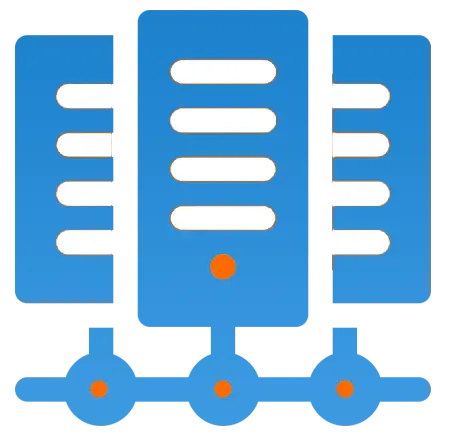Get 69% Off on Cloud Hosting : Claim Your Offer Now!
- Products
-
Compute
Compute
- Predefined TemplatesChoose from a library of predefined templates to deploy virtual machines!
- Custom TemplatesUse Cyfuture Cloud custom templates to create new VMs in a cloud computing environment
- Spot Machines/ Machines on Flex ModelAffordable compute instances suitable for batch jobs and fault-tolerant workloads.
- Shielded ComputingProtect enterprise workloads from threats like remote attacks, privilege escalation, and malicious insiders with Shielded Computing
- GPU CloudGet access to graphics processing units (GPUs) through a Cyfuture cloud infrastructure
- vAppsHost applications and services, or create a test or development environment with Cyfuture Cloud vApps, powered by VMware
- Serverless ComputingNo need to worry about provisioning or managing servers, switch to Serverless Computing with Cyfuture Cloud
- HPCHigh-Performance Computing
- BaremetalBare metal refers to a type of cloud computing service that provides access to dedicated physical servers, rather than virtualized servers.
-
Storage
Storage
- Standard StorageGet access to low-latency access to data and a high level of reliability with Cyfuture Cloud standard storage service
- Nearline StorageStore data at a lower cost without compromising on the level of availability with Nearline
- Coldline StorageStore infrequently used data at low cost with Cyfuture Cloud coldline storage
- Archival StorageStore data in a long-term, durable manner with Cyfuture Cloud archival storage service
-
Database
Database
- MS SQLStore and manage a wide range of applications with Cyfuture Cloud MS SQL
- MariaDBStore and manage data with the cloud with enhanced speed and reliability
- MongoDBNow, store and manage large amounts of data in the cloud with Cyfuture Cloud MongoDB
- Redis CacheStore and retrieve large amounts of data quickly with Cyfuture Cloud Redis Cache
-
Automation
Automation
-
Containers
Containers
- KubernetesNow deploy and manage your applications more efficiently and effectively with the Cyfuture Cloud Kubernetes service
- MicroservicesDesign a cloud application that is multilingual, easily scalable, easy to maintain and deploy, highly available, and minimizes failures using Cyfuture Cloud microservices
-
Operations
Operations
- Real-time Monitoring & Logging ServicesMonitor & track the performance of your applications with real-time monitoring & logging services offered by Cyfuture Cloud
- Infra-maintenance & OptimizationEnsure that your organization is functioning properly with Cyfuture Cloud
- Application Performance ServiceOptimize the performance of your applications over cloud with us
- Database Performance ServiceOptimize the performance of databases over the cloud with us
- Security Managed ServiceProtect your systems and data from security threats with us!
- Back-up As a ServiceStore and manage backups of data in the cloud with Cyfuture Cloud Backup as a Service
- Data Back-up & RestoreStore and manage backups of your data in the cloud with us
- Remote Back-upStore and manage backups in the cloud with remote backup service with Cyfuture Cloud
- Disaster RecoveryStore copies of your data and applications in the cloud and use them to recover in the event of a disaster with the disaster recovery service offered by us
-
Networking
Networking
- Load BalancerEnsure that applications deployed across cloud environments are available, secure, and responsive with an easy, modern approach to load balancing
- Virtual Data CenterNo need to build and maintain a physical data center. It’s time for the virtual data center
- Private LinkPrivate Link is a service offered by Cyfuture Cloud that enables businesses to securely connect their on-premises network to Cyfuture Cloud's network over a private network connection
- Private CircuitGain a high level of security and privacy with private circuits
- VPN GatewaySecurely connect your on-premises network to our network over the internet with VPN Gateway
- CDNGet high availability and performance by distributing the service spatially relative to end users with CDN
-
Media
-
Analytics
Analytics
-
Security
Security
-
Network Firewall
- DNATTranslate destination IP address when connecting from public IP address to a private IP address with DNAT
- SNATWith SNAT, allow traffic from a private network to go to the internet
- WAFProtect your applications from any malicious activity with Cyfuture Cloud WAF service
- DDoSSave your organization from DoSS attacks with Cyfuture Cloud
- IPS/ IDSMonitor and prevent your cloud-based network & infrastructure with IPS/ IDS service by Cyfuture Cloud
- Anti-Virus & Anti-MalwareProtect your cloud-based network & infrastructure with antivirus and antimalware services by Cyfuture Cloud
- Threat EmulationTest the effectiveness of cloud security system with Cyfuture Cloud threat emulation service
- SIEM & SOARMonitor and respond to security threats with SIEM & SOAR services offered by Cyfuture Cloud
- Multi-Factor AuthenticationNow provide an additional layer of security to prevent unauthorized users from accessing your cloud account, even when the password has been stolen!
- SSLSecure data transmission over web browsers with SSL service offered by Cyfuture Cloud
- Threat Detection/ Zero DayThreat detection and zero-day protection are security features that are offered by Cyfuture Cloud as a part of its security offerings
- Vulnerability AssesmentIdentify and analyze vulnerabilities and weaknesses with the Vulnerability Assessment service offered by Cyfuture Cloud
- Penetration TestingIdentify and analyze vulnerabilities and weaknesses with the Penetration Testing service offered by Cyfuture Cloud
- Cloud Key ManagementSecure storage, management, and use of cryptographic keys within a cloud environment with Cloud Key Management
- Cloud Security Posture Management serviceWith Cyfuture Cloud, you get continuous cloud security improvements and adaptations to reduce the chances of successful attacks
- Managed HSMProtect sensitive data and meet regulatory requirements for secure data storage and processing.
- Zero TrustEnsure complete security of network connections and devices over the cloud with Zero Trust Service
- IdentityManage and control access to their network resources and applications for your business with Identity service by Cyfuture Cloud
-
-
Compute
- Solutions
-
Solutions
Solutions
-
 Cloud
Hosting
Cloud
Hosting
-
 VPS
Hosting
VPS
Hosting
-
GPU Cloud
-
 Dedicated
Server
Dedicated
Server
-
 Server
Colocation
Server
Colocation
-
 Backup as a Service
Backup as a Service
-
 CDN
Network
CDN
Network
-
 Window
Cloud Hosting
Window
Cloud Hosting
-
 Linux
Cloud Hosting
Linux
Cloud Hosting
-
Managed Cloud Service
-
Storage as a Service
-
 VMware
Public Cloud
VMware
Public Cloud
-
 Multi-Cloud
Hosting
Multi-Cloud
Hosting
-
 Cloud
Server Hosting
Cloud
Server Hosting
-
 Bare
Metal Server
Bare
Metal Server
-
 Virtual
Machine
Virtual
Machine
-
 Magento
Hosting
Magento
Hosting
-
Remote Backup
-
 DevOps
DevOps
-
 Kubernetes
Kubernetes
-
 Cloud
Storage
Cloud
Storage
-
NVMe Hosting
-
 DR
as s Service
DR
as s Service
-
-
Solutions
- Marketplace
- Pricing
- Resources
- Resources
-
By Product
Use Cases
-
By Industry
- Company
-
Company
Company
-
Company
Importance of Cloud Security Audit
Table of Contents
- What is a cloud security audit?
- What is the concept of security in the cloud?
- 5 Reasons why Cloud Security Audits are Necessary
- How often should cloud security audits be conducted?
- How is a cloud security audit conducted?
- 10-point cloud security audit checklist
- Challenges involved in a Cloud Security Audit
- Final Thoughts
In order to keep cloud-hosted applications and data safe from theft and unauthorized access, security audits are essential. Cloud services level the playing field for businesses by allowing them to host their apps and data there.
The agility, however, comes at a cost in terms of security. Cloud security breaches can have significant financial consequences.
The goal of this article is to provide you with an overview of cloud security and the audits that are conducted to evaluate it. The first thing we will discuss is what a cloud security audit is and why it is so important. Next, we will discuss the steps involved. In the final section, we will discuss some of the challenges involved in cloud security testing and how to choose an audit provider that meets your needs.
What is a cloud security audit?
Organizations perform a cloud security audit to ensure that their data and other assets are protected in the cloud. An external auditor usually audits the target security posture using various test cases and checklists.
What is the concept of security in the cloud?
It is the responsibility of both cloud providers and customers to ensure the security of the cloud. In addition to securing their infrastructure, cloud providers are also responsible for securing their customers’ data and applications. Here is a table that will help you better understand it.
| Type of Cloud Service | Security Responsibilities of Cloud Providers | Security Responsibilities of Clients |
| Infrastructure as a Service (IaaS) | Virtualization. Network, Infrastructure, Physical | User Access, Data, Application, Operating System |
| Platform as a Service (PaaS) | Operating System, Virtualization, Network, Infrastructure, Physical | User Access, Data, Application |
| Software as a Service (SaaS) | Operating System, Virtualization, Network, Infrastructure, Physical | User Access, Data |
5 Reasons why Cloud Security Audits are Necessary
Business of all sizes have embraced the cloud. With its cost, scalability, and agility advantages, it is a popular choice.
Cloud computing, however, also presents some security challenges. There are a number of reasons why you should evaluate the security health of your cloud environment and the data stored there on a regular basis.
Cloud security audits are important because they:
- Identify compliance risks and provide recommendations for remediation with a cloud security audit.
- Protect data confidentiality, integrity, and availability: A cloud security evaluation identifies potential threats to an organization’s cloud environment. Organizations can also develop appropriate controls to mitigate risks as a result of it.
- Detect and prevent unauthorized access to data through a cloud security assessment: Organizations can use a cloud security assessment to verify that the security controls they employ are effective.
- Assist organizations in identifying potential sources of data loss and prioritizing issues that need to be addressed, a security audit can help.
- Assess the cloud security posture and make necessary improvements based on identifying security weaknesses.
How often should cloud security audits be conducted?
Depending on the sensitivity of the data stored in the cloud and the organization’s risk tolerance, security audits for cloud infrastructure should be conducted on a regular basis. It is recommended that most organizations conduct a cloud security audit at least once a year. In some cases, organizations may need to conduct audits more frequently because their data is sensitive or they are at high risk of cloud security breaches.
How is a cloud security audit conducted?
The security audit process typically includes the following steps:
- Defining the audit’s objectives, scope, and approach is the first step in planning.
- The next step is to collect data about the cloud environment. The data can be collected manually or automatically.
- Analyze the collected data and prepare a report that highlights risks and vulnerabilities.
- Providing recommendations on how to mitigate risks and vulnerabilities is part of this step.
- Cloud security loopholes are fixed using the recommendations received in the previous step.
10-point cloud security audit checklist
- Find out which cloud provider(s) and service(s) are being used.
- Learn about the security controls offered by the cloud provider.
- Identify your cloud environment’s users and their access levels.
- Make sure that data in transit is encrypted.
- Data at rest should be encrypted.
- Implement strong authentication and authorization controls.
- Principles of least privilege should be implemented.
- Cloud activity should be monitored.
- Detect unusual or suspicious activity using tools.
- Update and patch your cloud environment regularly.
Challenges involved in a Cloud Security Audit
There are a number of reasons why cloud security audits can be challenging.
- It is difficult to keep track of all the changes in cloud environments because they are constantly changing.
- Second, cloud providers have different security policies, making it difficult to assess all risks and vulnerabilities. Cloud security policies must be adhered to when choosing test cases.
- The third problem is that cloud environments are often complex and large, making it difficult to collect all the data needed for the audit.
- In addition, cloud providers typically have different levels of security, which makes it difficult to identify all risks and vulnerabilities.
Final Thoughts
Partnering with the right security testing company and integrating some simple security practices into your organization’s culture can alleviate the anxiety, difficulty, and expenditure readily associated with cloud security. Cloud audits are designed to help you optimize and secure your cloud-hosted operations.
In case you have any doubts, questions, confusion, or curiosity regarding cloud security audits, visit our website and get in touch with us!
Recent Post

Stay Ahead of the Curve.
Join the Cloud Movement, today!
© Cyfuture, All rights reserved.
Send this to a friend

 Pricing
Calculator
Pricing
Calculator
 Power
Power
 Utilities
Utilities VMware
Private Cloud
VMware
Private Cloud VMware
on AWS
VMware
on AWS VMware
on Azure
VMware
on Azure Service
Level Agreement
Service
Level Agreement 


















